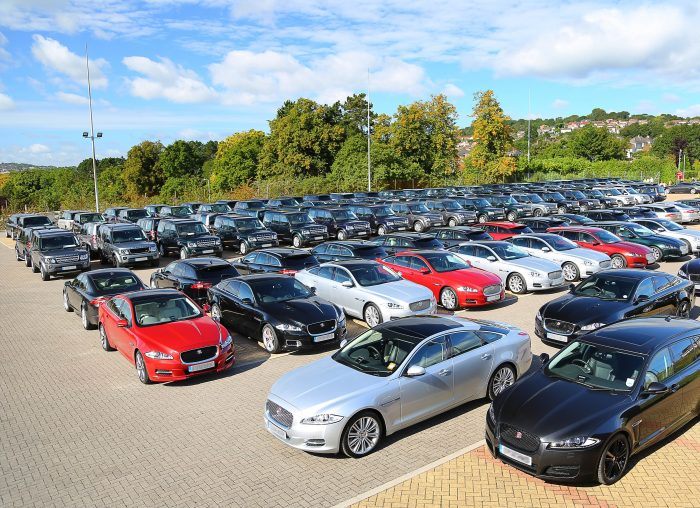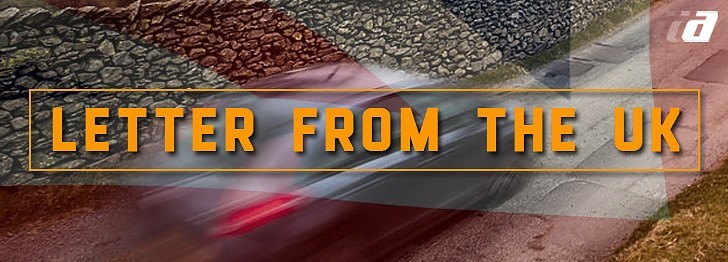UK Car Production Down: But Is It All About Brexit?
I receive many messages in my burgeoning email inbox. Some of them I don’t want to read because they bear no relation to what I actually do. I do not, for example, want to buy electrical parts from China, perfumes from Paris, and I don’t want to meet attractive girls from foreign lands. Well, in a sort of typically male lecherous sense I do, but the marriage contract and the prospects for my future health don’t allow for it.
I also get a lot of mail every financial quarter from motor manufacturers shouting from the rooftops that the last three months have been their best yet in terms of sales and profits; this includes European car makers like Volvo and Volkswagen. They must be doing this by means of economies of scale or something because, if the UK motor industry is anything to go by, business is not looking rosy.
Worrying Statistics
Figures recently released show that UK car production once again declined in March, with demand falling by -13.3% year on year as the domestic market continues to slow down. Exports also declined, down -11.9% due to fluctuations in demand in some global* markets. In addition, some manufacturers were impacted by the adverse March weather* conditions which negatively affected production operations.
Overall, output in the first quarter of 2018 fell -6.3%, with 440,426 cars leaving production lines in total this year. Almost 80% of these were exported, and while demand from overseas customers fell, this was dwarfed by the -14.1% decline in manufacturing for the UK market.
The UK’s vehicle and component manufacturers are important contributors to the UK economy and are responsible for 13% of all the country’s export in goods. For every one British pound generated by the motor industry, three pounds are delivered to the economy via adjacent sectors such as logistics, retail, and finance. Overall this is estimated to be 10% of UK Gross Domestic Product.
An industry executive is reported as saying, “A double digit decline in car manufacturing for both home and overseas markets is of considerable concern. Following recent announcements on job cutbacks in the sector, it’s vitally important that the industry and consumers receive greater certainty, both about future policies towards diesel and other low emission technologies, and our post-Brexit trading relationships and customs arrangements. Maintaining free and frictionless trade is an absolute priority – it has been fundamental to our past success and is key to our future growth.”
True enough; but is it the whole story or do other factors also impinge on our national prosperity? I think they do.

In this September 2014 photo, recently manufactured Jaguar and Land Rover vehicles await shipping. According to a CNN Money report, dated April 16th 2018, the company is cutting manufacturing jobs in Birmingham citing Brexit as one of the reasons. Photo: Jaguar Land Rover.
The Big Picture
Further up the page I have set an asterisk against two words. One is ‘weather’ and is something none of us can do anything about, especially in this country when we can get four seasons in one day. The other is ‘global’ in the sense that we, as a productive nation, cannot possibly allow for unknown variables like the state of the economies outside of the European bloc. Inevitably, if, say a Far Eastern economy is suffering then it stands to reason that we will sell less to them. Conversely, if a country is successful with its internal economy they may buy less from us unless we are truly competitive. That’s just basic economics. Swings and roundabouts.
Yet, I wonder if that is the whole picture. Yes, the uncertainty surrounding the British exit (hence Brexit) from the European Union is a major factor. The Eurocrats continue to be difficult and intransigent and the UK Government continues to be weak and vacillating. Is it any wonder the British Public are concerned about their long-term prosperity and that the UK car industry, like Yossarian, doesn’t have a clue which way to jump: but I also think it doesn’t end there.

Volkswagen’s Transparent Factory or “Die Gläserne Manufaktur” in Dresden, Germany serves as the automaker’s Center of Future Mobility. The facility offers tours, exhibitions, and test drives for attendees with a focus on electrification. The e-Golf has been made here since April 2017 and will be joined by other electric models according to Volkswagen. Photo: Volkswagen UK.
The Public Purse
Sales of diesel cars have been very badly hit thanks to the adverse, and rather unfair, publicity yet the sales of petrol, hybrid, and electric cars have not risen to the same extent, something that would seem to be a reasonable assumption. The fact is, despite some aggressive price cutting and attractive leasing options, the British public are keeping their cars for much longer (my own car is six years old and I’m very happy with it) because they either do all that is required of them or the people are simply losing interest.
Running a car is expensive here. Fuel prices, insurance premiums, and all manner of taxes make owning a vehicle a costly luxury. Certainly many young people on starter wages can’t afford it. Other needs are taking precedence. I don’t have any evidence to back any of this up but, call me crazy and send me off to the funny farm, in the back of my mind I do wonder if the car industry isn’t killing itself. I know, I know, but I’ve put it out there now.
Changing Tides
From doing what I do (when not browsing listings of young ladies who desire my company above all else) I’m hearing the message: cars are getting boring. In the mainstream, affordable world that most of us live in they are all the same. Ask me the question, ‘which crossover shall I buy’ and my answer now will be ‘any of them,’ because they are all essentially identical. This one handles better than that one but has a smaller trunk and does five miles less to the gallon and so on: Yadda, Yadda, Yadda . . .
The most boring aspect of all is autonomous cars. To a gearhead these robots, these things, are anathema. It simply is not possible to get interested in them unless you’re fascinated by guidance systems.
Wherever you lay the blame; on economies or government or Brexit or an apathetic public, there is a danger that cars are losing their allure as status symbols or objects of desire. Once, in Great Britain, if you owned a Jaguar or a Mercedes it said that you had arrived. You had status in the community. Things are so different now and nobody much cares. They’re just cars.
Geoff Maxted is a motoring writer, photographer, and author of our Letter From The UK series. Follow his work on Twitter: @DriveWrite
Cover Photo: Jaguar Land Rover.
from Automoblog.net https://ift.tt/2rgm6mc

No comments:
Post a Comment